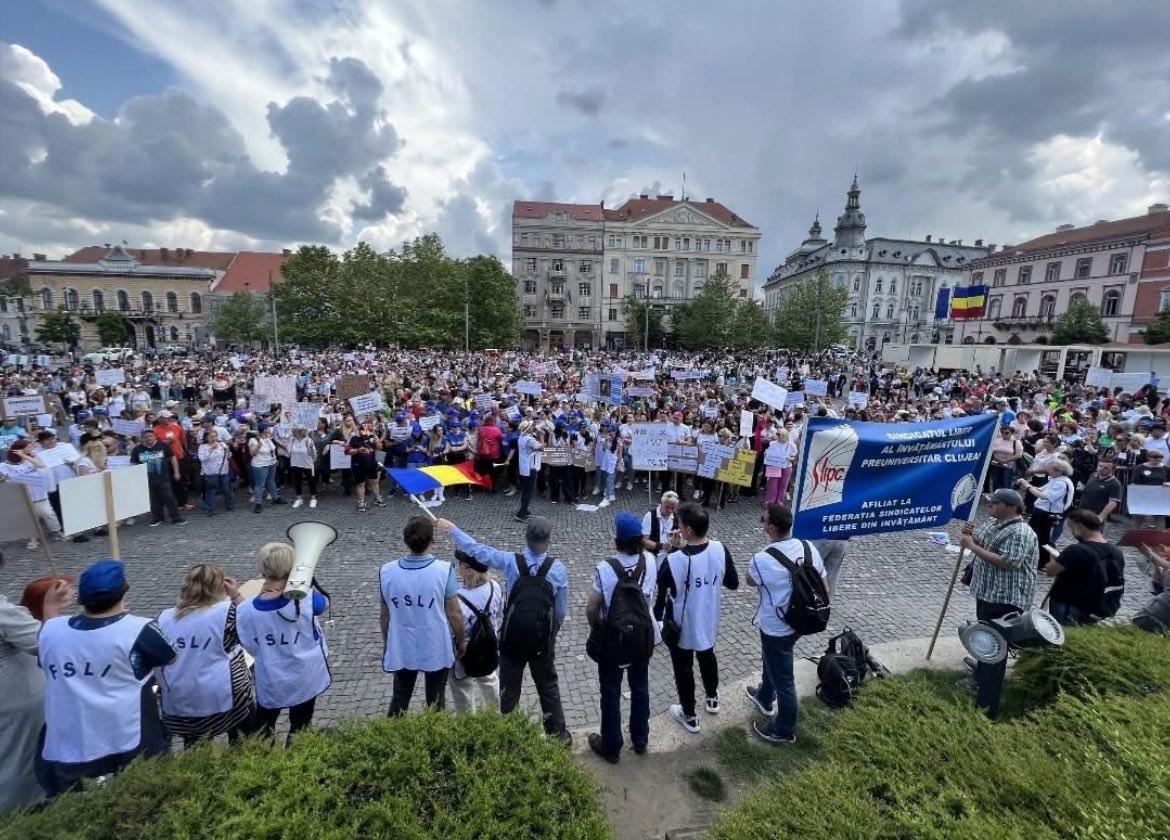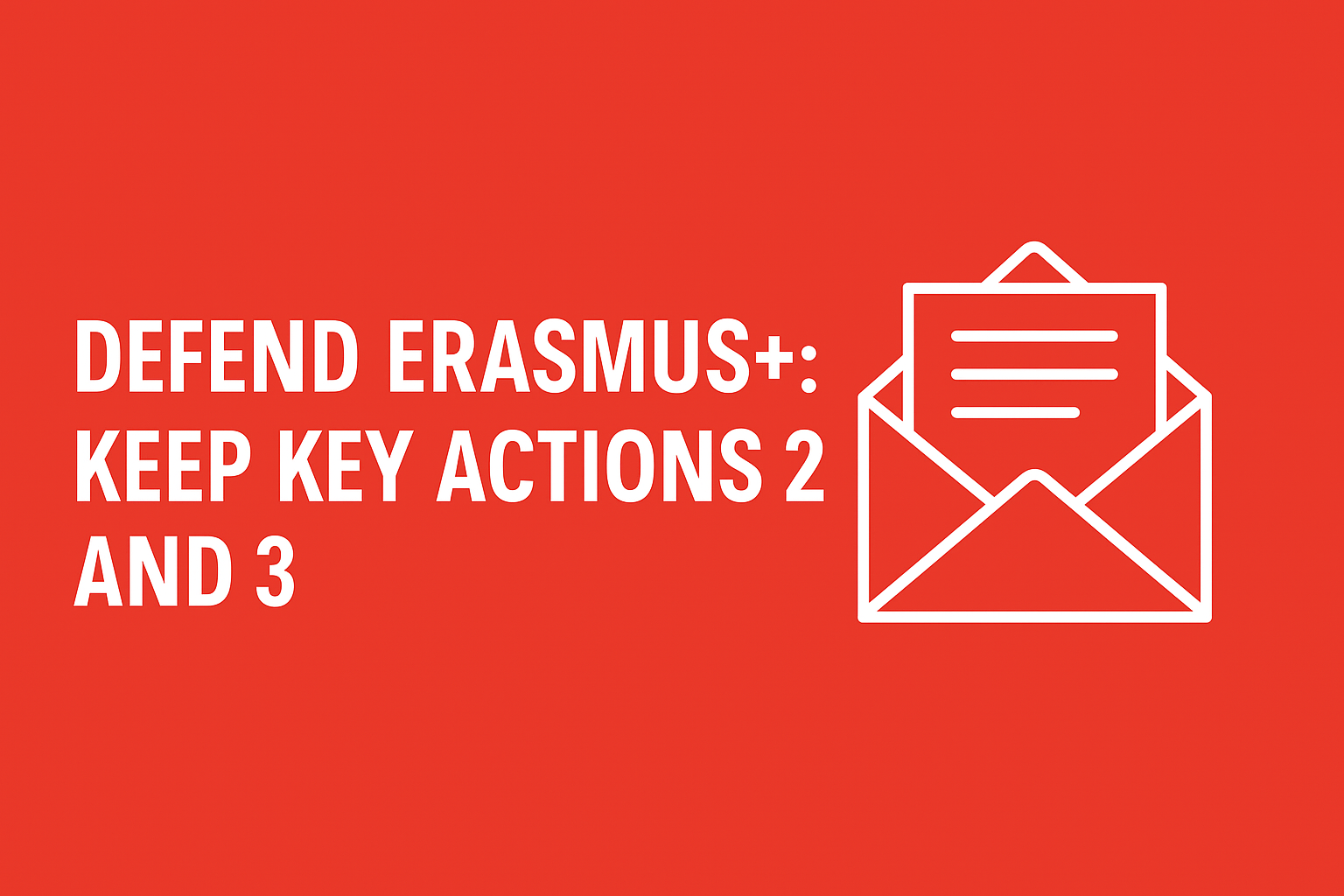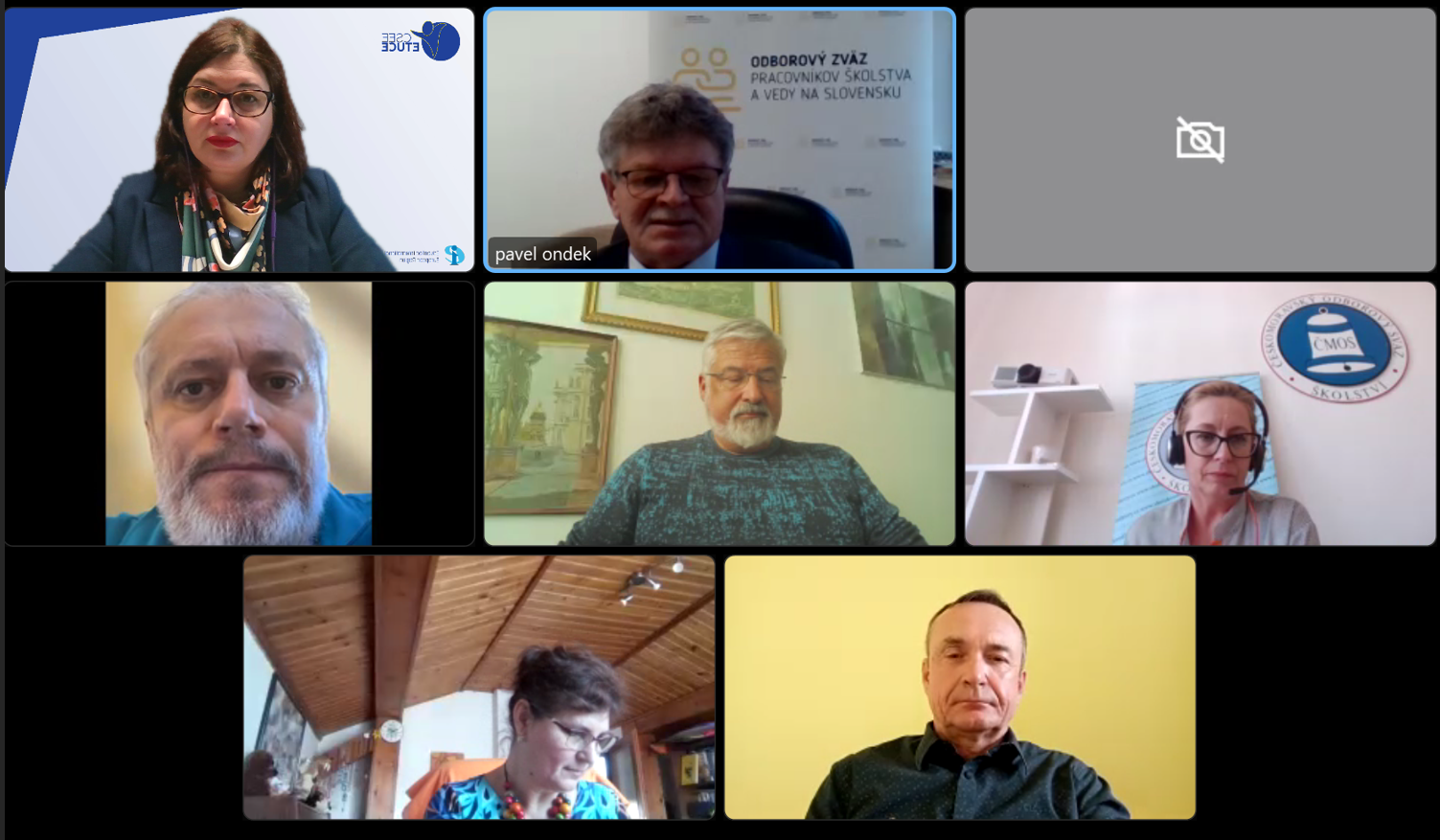ETUCE believes that education is a human right and a public good. Since the economic crisis broke out in Europe this principle has been questioned and put under severe pressure. Access to free quality education for all and quality of education and training system are deteriorating in many European countries. Teachers in particular stand at the core of the school environment and bear the biggest responsibility for education outcomes. Therefore, the destructive effect of the economic crisis on teachers' personal and professional wellbeing cannot be underrated: it poses a serious threat to the students and their families, and to the future of the European society.
Policy
- ETUCE Resolution on the Financial and Economic Crisis, adopted by the ETUCE Conference in November 2012 deplores the profound effect this crisis has had on teachers, education employees, and students, and asserts that sovereign debt and deficit reduction through austerity measures is not a viable path towards sustainable economic growth in the present situation across Europe. It also urges European-level policymakers and national governments to recognize that it is their imperative to seek an exit from the crisis for the sake of future generations.
- Fighting the Crisis: an Essential Contribution of Higher Education and Research is an ETUCE resolution adopted by the Conference in 2012. It states how Higher Education could contribute to better face the complex challenges of today's societies, although suffering more and more from lack of financing and worsened working conditions due to implementation of austerity measures.
- The ETUCE Statement on the Economic Crisis approved by the ETUCE Committee in October 2011 comes at a time when the crisis dynamic has entered a new devastating cycle in Europe, putting the Euro zone at risk of collapse. The statement denounces short-term solutions based on 'Austerity', and the denial of basic trade union rights in countries most hit by the economic crisis.
Membership
Trade unions experts on education and training as well as higher education discuss the issue of the impact of the economic crisis on education and training systems in the permanent committees of ETUCE, in particular the Advisory Panel and the Higher Education and Research Standing Committee.
- ETUCE is member of the Alter Summit, a platform gathering together social movements and trade unions to cooperate to fight anti-social and anti-ecological austerity policies.
- ETUCE is supporting FTT: Financial Transaction Tax now!, A campaign to regulate the financial market and to generate public revenue
Actions
Since the crisis first broke out in 2008 ETUCE has been continuously monitoring the effects of the crisis on teachers' working conditions, salary and professional development, and on the education and training system across Europe.ETUCE member organisations have organized campaign activities and demonstrated support and solidarity to each other, especially towards those countries where trade union rights where under fire.
- ETUCE film documentary: 'When Europe forgot its homework: Education in crisis' released, first screening September 2014. The documentary shows the impact of the crisis on students, teachers and families, and on society as a whole, focusing on the situation in Greece, Italy, Portugal, Spain, and Ireland. The documentary also shows how teacher trade unions in those countries have responded to the crisis.
- ETUCE project 'Development of teachers' union expertise in exiting the crisis through quality education' carried out from December 2013 to November 2014 contributes to addressing the effects of the financial and economic crisis in the Education sector.
- In the framework of the EI/ETUCE initiative Unite for Quality Education, ETUCE Member organization mobilize for Quality of Education based on 10 Key Messages on 'What is needed to improve Quality of Education in Europe?' adopted by the ETUCE Committee on 23-24 October 2013.
- ETUCE dedicated webpage on the Crisis in Education reports the deteriorating conditions of education and training systems as well as of teachers and trainers across Europe, as reported by ETUCE member organizations.
- ETUCE Surveys comparisons on 'The crisis and its drawn-out effects on Education since 2008', released in 2014 and presented to candidates to the European Parliament elections, compares the various surveys which ETUCE carried out between 2008 and 2013. During those years, there hasn't been any clear sign of recovery and exiting from the crisis.
- The ETUCE Action and Campaign Framework on the Economic Crisis revealed the detrimental effect of the crisis on the education sector.
- ETUCE survey - The continued impact of the crisis on teachers in Europe (2013) includes information about further cuts on teacher education.
- ETUCE made surveys to prove the negative effect of the crisis on teaching profession and teacher education. Analysis of a mini-survey on the impact of the economic crisis on teacher education in the European Union (2012) The survey investigates the effect of the economic and financial crisis on teacher education in three fields: initial education of teachers, induction phase of teachers, professional development of teacher.
- ETUCE Special Meeting 'Education: a response to the crisis', in January 2012 to strengthen cooperation among trade unions to exiting the crisis, as stressed in its conclusions.
More information
- ETUCE Special Newsletter on Campaign Activity 3/2014
- ETUCE Newsletter 4/2011: ETUCE Committee: Focus on the economic crisis
- ETUCE Circular 3/2011: Crises and education
- ETUCE Newsletter 3/2011: Follow-up on the ETUCE action to tackle the impact of the economic crisis on education















